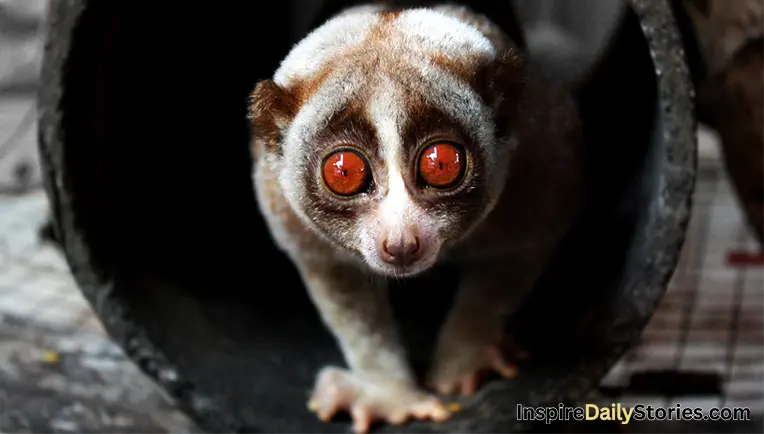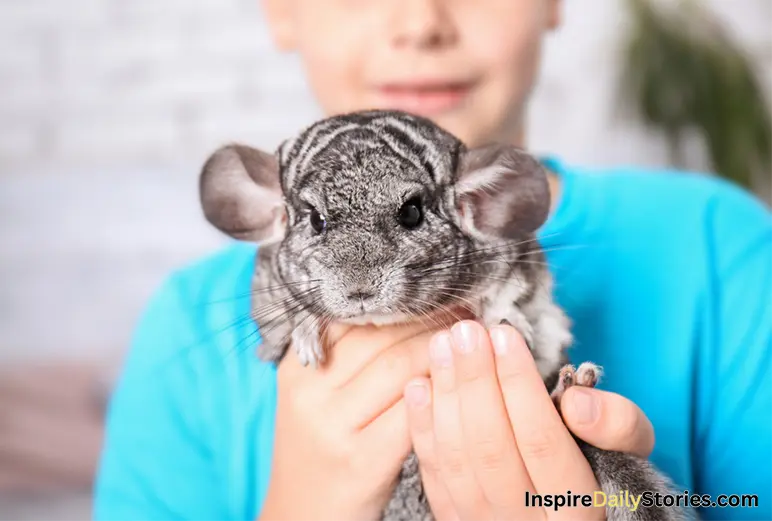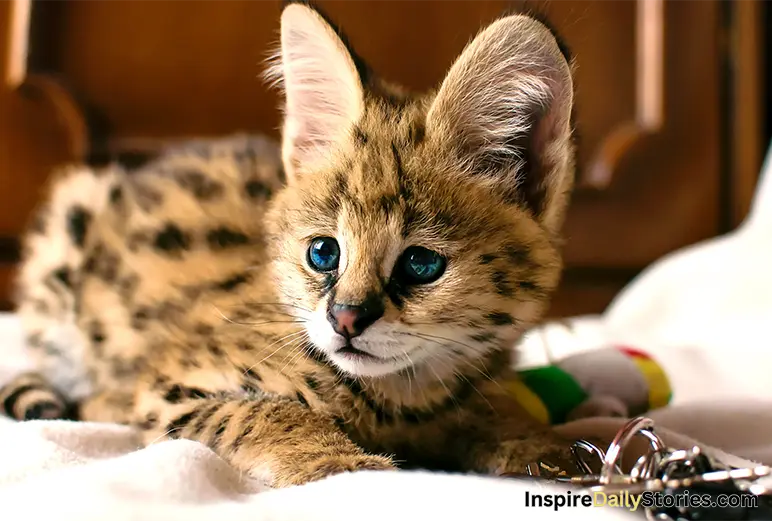How Can You Create a Safe Haven for Your Exotic Pets?

Introduction
A. Importance of providing a safe haven for exotic pets
Owning an exotic pet is a big responsibility. Just like any other animal, they need a safe place to live. This is super important because it keeps them healthy and happy. Think of it like making a cozy home for your furry or scaly friend!
B. Brief overview of the challenges exotic pet owners face
Exotic pet owners face unique challenges. These pets come from different environments than regular pets, so it can be tricky to meet their needs. Things like finding the right food or making sure they have enough space can be tough.
C. Thesis statement: Strategies for creating a safe environment for exotic pets
Now, let’s talk about some strategies to keep your exotic pet safe and sound. We’ll explore ways to make their habitat just right, what kind of food they need, and how to keep them healthy. Think of it as your guide to being the best exotic pet owner you can be!

Understanding Exotic Pets
A. Definition of exotic pets
Exotic pets are animals that are not typically found in the wild where you live. They’re like having a piece of the jungle or desert right in your home. These can include snakes, lizards, birds, and even some small mammals.
B. Popular types of exotic pets
Some of the most popular exotic pets are reptiles like snakes and lizards. People also love keeping colorful birds like parrots and cockatiels. But there are also unique creatures like sugar gliders and hedgehogs that make interesting pets.
C. Unique care requirements and challenges they pose
Exotic pets need special care because they come from different environments than regular pets. For example, reptiles need specific temperatures and humidity levels to stay healthy. Birds need lots of mental stimulation and space to fly around. Understanding these unique needs is key to keeping them happy and thriving.

Researching and Selecting the Right Environment
A. Importance of research before acquiring an exotic pet
Before getting an exotic pet, it’s super important to do some research. This means learning all about the type of pet you want to bring into your home. Knowing what they need helps you give them the best life possible.
B. Factors to consider when selecting a suitable habitat
- Climate and temperature requirements: Different exotic pets come from different places, so they need specific temperatures to stay healthy. Some like it hot, while others prefer it cooler.
- Space and enclosure size: Exotic pets need enough room to move around and explore. Their homes should be big enough for them to stretch out and feel comfortable.
- Environmental enrichment opportunities: Exotic pets thrive when they have things to keep them busy and entertained. This can include toys, hiding spots, and things to climb on.
- Compatibility with other pets (if applicable): If you already have pets at home, it’s important to consider how they’ll get along with your new exotic pet. Some animals may not be friends, so it’s crucial to plan ahead.
C. Consulting with experts or veterinarians for guidance
If you’re not sure about something, don’t worry! There are specialists available to provide assistance. Veterinarians who specialize in exotic pets or experienced pet owners can give you great advice on how to create the perfect home for your new friend.

Creating a Safe and Enriching Habitat
A. Habitat design considerations
- Naturalistic elements to mimic the pet’s native environment: Exotic pets feel happiest when their homes remind them of where they come from. So, it’s cool to add things like plants, rocks, and branches to make their space feel like home.
- Safety features to prevent escapes or injuries: We want our exotic pets to stay safe, right? That means making sure their homes have secure locks and no sharp edges that could hurt them. Safety first!
- Proper ventilation and lighting: Just like us, exotic pets need fresh air and light to stay healthy. Their homes should have good airflow and the right kind of lighting to keep them feeling good.
B. Providing appropriate substrates, hiding spots, and climbing structures
Exotic pets like to explore and play, so it’s important to give them things to do. This can include soft bedding for digging, cozy hiding spots for resting, and cool climbing structures for when they want to stretch their legs.
C. Regular maintenance and cleaning routines to prevent health hazards
We’ve got to keep our exotic pet’s home clean to keep them healthy! That means scooping out any poops, changing their bedding regularly, and wiping down their habitat to keep things tidy. It’s all about making sure they have a clean and comfy place to live!

Meeting Nutritional Needs
A. Importance of a balanced diet for exotic pets
Just like us, exotic pets need to eat right to stay healthy. Giving them the right food is super important for keeping them strong and happy. It’s like fuel for their little bodies!
B. Researching dietary requirements specific to the species
Different exotic pets have different diets. Some might be meat-eaters, while others prefer fruits and veggies. Doing some research helps you figure out exactly what your pet needs to munch on to stay healthy.
C. Offering a variety of fresh foods and supplements as needed
Exotic pets love a good variety in their meals, just like we do! Mixing things up with different fruits, veggies, and protein sources keeps them interested and makes sure they get all the nutrients they need. Sometimes they might need a little extra boost with supplements too.
D. Avoiding harmful or toxic foods
Not all foods are safe for our exotic friends. Some things that are okay for us to eat can actually be super harmful to them. So, it’s important to know what foods to steer clear of and always double-check before sharing your snacks with your pet.
Addressing Behavioral and Psychological Needs
A. Understanding the behavioral traits of exotic pets
Exotic pets have their own unique behaviors, just like people do. Understanding what makes them tick helps us give them the right kind of care and attention. It’s like learning their language!
B. Providing mental stimulation through enrichment activities
Exotic pets love to stay busy and use their brains. Giving them fun activities to do, like puzzles or toys to play with, keeps their minds sharp and prevents boredom. It’s similar to offering them a problem to figure out!
C. Importance of social interaction and companionship
Just like us, exotic pets enjoy spending time with others. Whether it’s with their human family or other pets, socializing helps keep them happy and feeling loved. It’s like having a buddy to hang out with!
D. Recognizing signs of stress or boredom and addressing them promptly
Sometimes our exotic pals can feel stressed or bored, just like we do. It’s important to pay attention to their behavior and look out for signs that something might be wrong. If they seem unhappy, we can help by giving them extra attention or changing up their environment. It’s like being a good friend and helping them when they’re feeling down!
Accessing Veterinary Care
A. Importance of routine veterinary check-ups
Just like us going to the doctor, exotic pets need check-ups too! These visits help catch any health problems early and keep our furry or scaly friends feeling their best. It’s like a regular health check for them!
B. Finding a veterinarian with experience in exotic pet care
Not all vets are experts in exotic pets, so it’s important to find one who knows all about our special friends. They’ll know exactly how to care for them and can give us the best advice. It’s like having a doctor who speaks our pet’s language!
C. Budgeting for potential medical expenses
Taking care of exotic pets means being ready for any unexpected vet bills. Setting aside some money for emergencies helps us make sure our pets can get the care they need, no matter what. It’s like having a safety net for our pets’ health!
D. Understanding common health issues and preventive care measures
Just like with people, exotic pets can get sick too. Knowing about the common health problems they might face helps us keep an eye out for any signs that something’s wrong. And taking preventive measures, like giving them the right food and keeping their habitat clean, helps keep them healthy and happy. It’s like giving them a shield against sickness!
Legal and Ethical Considerations
A. Researching local laws and regulations regarding exotic pet ownership
Before bringing home an exotic pet, it’s important to know the rules. Different places have different laws about what kinds of animals you can keep as pets. Doing some research helps you make sure you’re following the right rules. It’s like knowing the game’s rules before you start playing!
B. Ensuring ethical acquisition of exotic pets (e.g., avoiding illegal trafficking)
We want to make sure our exotic pets come from good places. Buying them from responsible breeders or adopting them from shelters helps us avoid supporting illegal trading. It’s like making sure we buy products that are made ethically!
C. Joining advocacy groups or organizations supporting responsible exotic pet ownership
Being a good exotic pet owner means being part of a community that cares. Joining groups or organizations that support responsible pet ownership helps us learn more and make a positive impact. It’s like being part of a team that’s working to make the world a better place for animals!
Conclusion
A. Recap of strategies for creating a safe haven for exotic pets
To make sure our exotic pets are happy and healthy, we’ve learned a bunch of cool strategies! From setting up their homes just right to giving them the best food, we’ve got everything covered to create a safe and comfy place for them.
B. Emphasizing the importance of commitment and responsibility in exotic pet ownership
Taking care of an exotic pet is a big responsibility. It’s like having a special mission to make sure our furry or scaly friends have the best life possible. So, it’s super important to be committed and take good care of them every single day.
C. Encouraging continued education and awareness for exotic pet owners
Learning about exotic pets is a journey that never ends! There’s always something new to discover and ways to improve how we care for our pets. So, let’s keep exploring, asking questions, and sharing what we know to be the best exotic pet owners we can be!
People also ask
How can we help exotic animals?
We can support conservation efforts and avoid purchasing exotic pets from illegal sources.
What is the safest exotic animal to own?
It depends on factors like your experience and ability to meet their needs.
How do you care for exotic pets?
Research their specific needs and provide proper habitat, diet, and enrichment.
Is it OK for people to keep exotic pets?
It can be if they’re committed, knowledgeable, and follow legal and ethical guidelines.
What do exotic pets need to survive?
They need appropriate habitat, nutrition, mental stimulation, and veterinary care.
What do exotic animals need?
Exotic animals need proper care, respect for their natural behaviors, and protection of their habitats.



